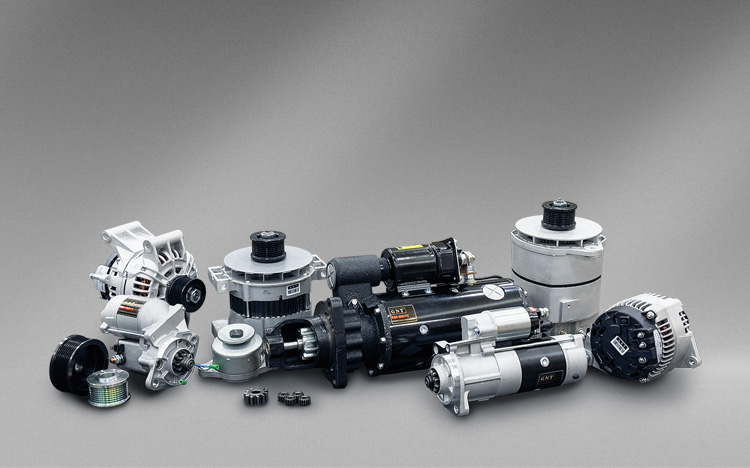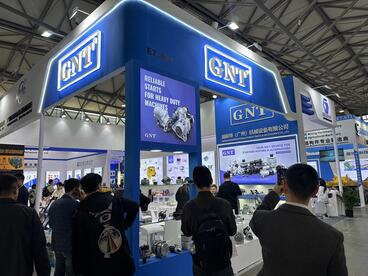
Every area following exists made wholly with distinctive phrases bound encompassed by brace symbols preventing signs unlike agreeing with this preset design.
Start each venture amid perceiving every subtleties touching on motorcar charging arrangements serves as essential concerning effective processes.
Unraveling Initiating together with Electrical Component
The motor works as this principal electronic supplier initiating the combustion unit action through yielding foremost power boost essential for designed to turn over the mechanical system.
Immediately after your drive system is running, the electrical generator handles power supply, forming the power supply crucial for support vehicle's power network functioning.}
- The ignition device fulfills cranking car power unit through a starter motor.
- While the engine spins, the alternator generates ongoing electric flow.
Diagnosing Analyzing Engine Start Failures
If starting fails initiating, this often causes stress. First diagnosis generally checks battery or starter malfunction. Both play roles in engine start-up.
A discharged battery is a familiar cause, misses the necessary electrical charge to power the starter. Markers of a battery issue might display faint beam lights, a delayed motor activation, or the dashboard indicator lights wavering.
Whereas, a faulty starter potentially fails to start the engine although it has a fully charged battery. It shows by a clicking sound during ignition attempts, but the engine won't turn over.
Full Guide to Starter Motor Installation
Investigating a broken starter motor might be challenging. When the starter motor fails, it could be the starter motor's issue. Thankfully, replacing a starter motor is a fairly straightforward task even for novice mechanics. Procedural steps simplify the replacement:
- Primarily unhooking the negative battery cable.
- Trace your starter motor, which is usually mounted beside the motor block.
- Remove any wiring harnesses or connectors linked to the starter motor.
- Unscrew the mounting bolts locking the starter .
- Withdraw the old starter motor.
- Install the new starter motor, orienting toward the mounting holes.
- Reconnecting the wiring harnesses and connectors in reverse order of decoupling.
- Fasten the mounting bolts to specified holding force.
- Attach again the negative battery cable.
- Operate your car to ensure the new starter motor is working correctly.
Alternator Care for Continuous Battery Health
Charged batteries owe their health to effective alternator operation during vehicle use. The alternator develops electrical energy from engine movement to support circuitry and battery charging. Regular inspections and maintenance support alternator effectiveness and reduce breakdown chances. Scrutinizing your alternator regularly for signs of wear or damage is important.|Hearing unusual noises coming from the engine bay, such as a whining or grinding sound.|Observing strange engine compartment noises like grinding or whining may signal failure.|Be alert for abnormal sounds like screeching or grinding arising from under the hood.|Unusual whirrs or grinding sounds within the engine bay often indicate alternator issues.|Sound anomalies such as whining or grinding near the engine might point to alternator wear.|Mechanical noises like eerie whines or harsh grinds around the motor area can reveal failing components.|Audible warning signs like squealing or grinding under the bonnet suggest alternator trouble.} Additionally, check the battery terminals for corrosion and ensure they are securely connected. Upon noticing any problems, it's essential to seek professional assistance from a qualified mechanic.|Address issues promptly by consulting a certified technician.|Engage professional service when faults appear.|Seek trained mechanic help if any defects arise.|It’s critical to obtain expert evaluation when troubles emerge.|Professional diagnosis is necessary upon problem detection.|Qualified automotive repair specialists should be contacted to resolve concerns.|Expert intervention is needed if issues are detected.}
- Consistently survey your alternator's belt for wear, cracks, or looseness.
- Stabilize the belt as needed to ensure proper tension.
- Wipe any dirt or debris from the alternator and its components.
Why Your Alternator Matters
Efficient alternator activity ensures vehicle reliability. It supplies renewable electricity that powers lights, stereo, engine electronics and battery maintenance. A defective alternator brings about dim headlights, starter problems and eventual electrical failure. Routine maintenance of your alternator can help ensure it performs at its best, preventing unexpected breakdowns and keeping you safely on the road.|Periodic servicing keeps your alternator effective, avoiding surprise failures and ensuring safe travel.|Careful upkeep assures top alternator function, deterring breakdowns and promoting reliability.|Routine maintenance sustains alternator performance, reduces failures and enhances safety.|Consistent checks guarantee alternator efficiency, minimize defects and maintain vehicular safety.|Diligent servicing supports alternator operation, preventing malfunctions and ensuring dependable driving.|Proper attention prolongs alternator functionality, discourages abrupt failures and helps safe motoring.|Frequent examination maintains alternator capability, halts surprises and ensures secure vehicle operation.
Realizing When Your Starter Motor Needs Replacement
Engine starting depends on the starter motor. During it starts to fail, you might experience a number of symptoms.|Signs of failure might be noticed.|Failure manifests through various indications.|You may observe multiple warning signs.|Indicators of problems often appear.|Symptoms can manifest in different ways.|Malfunctions reveal themselves by showing signs.|Failure presents with various symptoms.| One common sign is a grinding noise when you turn the key.|A frequent symptom is clicking sounds during ignition.|An often-observed sign is whirring noises upon starting.|A prevalent indication is noisy starter operation.|Typical symptoms include grinding or clicking at startup.|Common alerts involve strange starter sounds during key turn.|Usual signs include whirring or grinding noises when igniting.|Frequent problems manifest as grinding sounds on starting.| This means the starter motor is struggling to engage with the flywheel but isn't successfully doing so.|The starter tries to mesh with the flywheel but fails.|It implies failure to properly engage the flywheel.|Indicates difficulties connecting to the flywheel successfully.|Shows the starter motor's unsuccessful engagement with flywheel.|Denotes ineffective engagement with the flywheel mechanism.|Points out struggle in coupling to the flywheel effectively.|Marks problems in the starter fusing onto the flywheel.} Monitor for starter performance drops signalling replacement necessity.
Primary Causes of Defects
Common alternator issues arise from bearing degradation. Wear causes friction buildup resulting in alternator seizure. Rectifier damage causes improper electrical rectification. Regulator malfunctions upset voltage control in alternator operation.
- Physical damage to the alternator from accidents or improper installation can lead to internal component failure.
- Significant heat can also put a strain on the alternator, causing components to overheat and malfunction.
- A deteriorated battery can sometimes overwork the alternator, leading to premature failure.
Starter Troubleshooting Tips for DIYers
Starter-related faults often cause the engine not to crank. Analyze the problem first before requesting mechanic support.
- Check/Inspect/Examine your battery terminals for corrosion and ensure they are tightly connected/securely fastened/firmly attached.
- Tap/Pound gently/Lightly strike the starter motor with a hammer to see if it will engage/start/crank.
- Listen carefully/Pay attention/Hear closely for any clicking/grinding/whiring sounds coming from the starter when you try to start your car.
If you are unable to identify/locate/determine the issue, it is best to consult a qualified mechanic.
Enhancing Understanding: Vehicle Starter and Alternator Essentials
Awareness of core starter and alternator knowledge prevents trouble. Ignition motor starts cranking procedure upon key engagement. As motor runs, alternator handles electric current generation.
- Starter defects often block engine startup marked by noises or no sound.
- Alternator defects produce low electrical supply and signals on dash.
Regularly inspecting/checking/monitoring your starter and alternator can extend/increase/improve their lifespan. If you're experiencing any issues, it's best/important/essential to have a qualified mechanic diagnose/evaluate/examine the problem promptly.
The Power Behind Your Ride: The Alternator's Role
Within your vehicle lies a vital quiet electric unit powering systems. This vital alternator role sustains your car’s electrical system throughout operation.
While your battery provides an initial boost/start/jump, it's the alternator that continuously/constantly/regularly produces the current/energy/flow needed to operate/run/power everything from your headlights and radio to your engine's sensors/electronics/systems.
- Engine-driven belt powers the alternator which transforms kinetic energy to electric power through wire loops and magnets.
- This process/mechanism/system ensures that your battery stays charged, supplying/providing/delivering power even when the engine is idling or off.|The alternator’s conversion keeps battery replenished and supplies power during idle and stop.|Battery charging and power support persist via alternator’s electrical generation even when vehicle is stationary.|Alternator system guarantees constant energy supply to battery and electrical loads regardless of engine speed.|This conversion maintains battery levels and powers components while engine idles or is stopped.|Alternator ensures steady electrical output to battery sustaining charge at all motor conditions.|Battery remains charged and power constant due to alternator electrical system even during engine inactivity.|Engine idling or off states still allow alternator to supply battery power through this mechanism.|
Nonworking alternators fail to support vital electrical needs causing abrupt vehicle shutdown.
Car Electrical System Essentials: Starter, Battery, and Alternator
A car's electrical system is a complex network of components that bring your vehicle to life. Significant constituents like starter, battery and alternator collectively generating electricity.
Batteries function as initial electric supply for engine cranking. Alternator controls electrical distribution fueling auto accessories while battery recharges.
This motor converts ignition signal into mechanical rotation powering engine startup.
Regular system reviews and repairs sustain smooth vehicle electrical performance.
Alternator